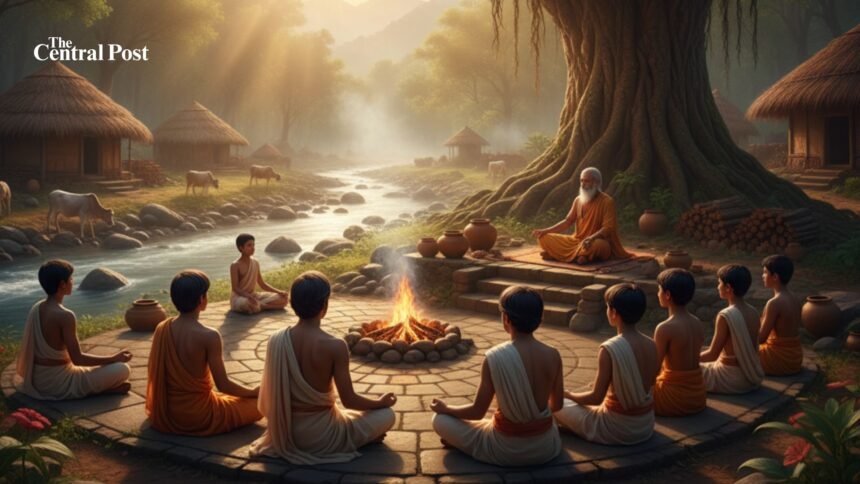In the long history of human civilization, India’s Vedic gurukul system stands out as one of the most holistic models of education. Unlike the modern classroom, which is often confined to grades, examinations, and professional competition, the gurukul was a living environment of discipline, simplicity, and complete development of the individual. Knowledge was not treated as a commodity but as a sacred path to wisdom and self-realization.
The gurukul system cultivated the body, mind, and spirit together. Students did not merely learn the Vedas or scriptures but also studied mathematics, astronomy, medicine, music, agriculture, and martial arts. Their education extended beyond intellectual training to encompass values, character, and practical life skills. Living with the teacher, students absorbed lessons through daily routines—cooking, farming, collecting firewood, serving the community, and practicing humility. The goal was not to create job-seekers but self-reliant individuals, capable of sustaining themselves and contributing to society with courage and responsibility.
By contrast, much of modern education has become examination-driven and detached from the values that sustain human life. While it produces technical expertise, it often neglects compassion, self-discipline, and ethical grounding. The result is a generation that is skilled in technology yet vulnerable to stress, consumerism, and alienation from nature. The gurukul system, with its emphasis on simplicity, balance, and moral responsibility, offers a corrective lens for this imbalance.
The need for such education is greater today than ever before. As the world faces crises of climate change, mental health, and cultural erosion, students require more than technical knowledge they need resilience, empathy, and an understanding of their role as custodians of both society and nature. A gurukul-inspired education can equip young people with not only academic skills but also inner stability, ecological awareness, and the ability to live in harmony with others.
The Vedic vision of education reminds us that learning is not complete until it shapes a person’s character and connects them to the larger order of life. Reviving elements of this system within our modern framework is not about rejecting progress, but about enriching it with values that can make progress meaningful. In a world racing toward material success, the gurukul ideal continues to whisper a timeless truth: education is not just about what we know, but about who we become.



















